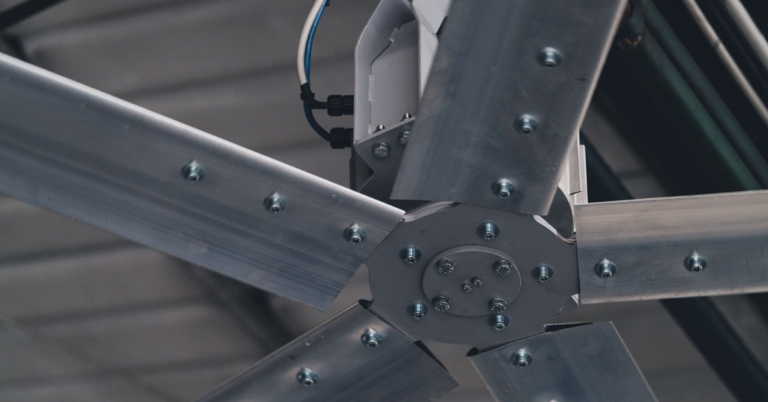Innovations in Recyclable Plastics for Car Components
sky247.net login, gold365.com ??, gold365.win:Innovations in Recyclable Plastics for Car Components
As the automotive industry continues to evolve and adapt to the demands of a more sustainable world, the use of recyclable plastics in car components is becoming increasingly important. Manufacturers are constantly seeking new ways to reduce their environmental impact and meet the desires of consumers who are looking for eco-friendly options.
In recent years, there have been significant innovations in recyclable plastics that are being used in the production of car components. These advancements are not only helping to reduce the amount of plastic waste generated by the automotive industry but are also providing opportunities for manufacturers to create lighter, more durable, and more cost-effective car parts.
In this article, we will explore some of the latest innovations in recyclable plastics for car components and how they are shaping the future of the automotive industry.
The Rise of Recycled PET
One of the most widely used recyclable plastics in car components is polyethylene terephthalate (PET). This material is commonly found in water bottles, food containers, and other consumer products. However, advances in technology have made it possible to recycle PET and use it in the production of automotive parts.
Recycled PET is lightweight, durable, and easily molded into various shapes, making it an ideal material for car components. Manufacturers are now using recycled PET to create everything from bumpers and interior panels to under-the-hood components.
Benefits of Recycled PET
Using recycled PET in car components offers a range of benefits, both for the environment and for manufacturers. Some of the key advantages of using recycled PET include:
1. Reduced environmental impact: By using recycled PET, manufacturers can reduce the amount of plastic waste that ends up in landfills or oceans. This helps to lower carbon emissions and conserve natural resources.
2. Cost-effectiveness: Recycled PET is often more cost-effective than virgin plastic, making it an attractive option for car manufacturers looking to reduce production costs.
3. Improved performance: Recycled PET is a strong and durable material that can withstand the rigors of everyday use in a vehicle. It is resistant to heat, chemicals, and impact, making it an excellent choice for car components.
4. Design flexibility: Recycled PET can be easily molded into complex shapes, allowing manufacturers to create innovative and stylish car parts that meet the demands of modern consumers.
Challenges of Using Recycled PET
While there are many advantages to using recycled PET in car components, there are also some challenges that manufacturers must consider. Some of the key challenges include:
1. Quality control: Ensuring the quality and consistency of recycled PET can be difficult, as the material may vary in composition and properties depending on its source.
2. Regulatory compliance: Manufacturers must comply with strict regulations regarding the use of recycled materials in automotive parts, which can add to production costs and complexities.
3. Limited availability: The supply of recycled PET may be limited, especially as demand for sustainable materials continues to grow. This can lead to supply chain disruptions and higher prices for manufacturers.
Innovations in Recycled ABS
Another recyclable plastic that is gaining popularity in the automotive industry is acrylonitrile butadiene styrene (ABS). This material is known for its strength, impact resistance, and heat resistance, making it a versatile option for car components.
Recycled ABS is made by melting down old ABS parts and reforming them into new components. This process helps to reduce waste and energy consumption, while also offering a sustainable alternative to traditional plastics.
Applications of Recycled ABS
Recycled ABS is used in a wide range of car components, including:
1. Dashboard components
2. Door panels
3. Exterior trim
4. Grilles
5. Interior trim
6. Underbody shields
Benefits of Recycled ABS
Using recycled ABS in car components offers several benefits, including:
1. Sustainability: Recycled ABS helps to reduce the environmental impact of the automotive industry by reusing old plastic parts and reducing the need for virgin materials.
2. Durability: ABS is a tough and durable material that can withstand the wear and tear of daily use in a vehicle. Recycled ABS retains these properties, making it a reliable option for car components.
3. Weight reduction: ABS is a lightweight material, which can help to reduce the overall weight of a vehicle and improve fuel efficiency. Using recycled ABS in car components can help manufacturers meet regulatory standards for emissions and fuel consumption.
4. Cost savings: Recycled ABS is often more cost-effective than virgin plastic, allowing manufacturers to save money on production costs and pass those savings on to consumers.
Innovative Recyclable Plastic Composites
In addition to recycled PET and ABS, there are also innovative recyclable plastic composites that are being used in car components. These composites are made by combining recycled plastics with other materials, such as natural fibers, glass fibers, or carbon fibers, to create a stronger, lighter, and more sustainable material.
Recyclable plastic composites offer a range of benefits for car manufacturers, including:
1. Improved strength and durability: By combining recycled plastics with other materials, manufacturers can create composites that are stronger and more durable than traditional plastics. This allows for the production of car components that are better able to withstand the stresses and strains of daily use.
2. Lighter weight: Plastic composites are typically lighter than metals, making them an attractive option for car manufacturers looking to reduce the weight of their vehicles. Lighter cars are more fuel-efficient and produce fewer emissions, helping to meet regulatory standards for environmental sustainability.
3. Design flexibility: Recyclable plastic composites can be easily molded into a variety of shapes and sizes, allowing for greater design flexibility and creativity. Manufacturers can create unique and innovative car components that set their vehicles apart from the competition.
4. Environmental benefits: Using recyclable plastic composites helps to reduce the environmental impact of the automotive industry by reusing old plastics and reducing the need for virgin materials. This helps to conserve natural resources and lower carbon emissions.
FAQs
Q: Are recyclable plastics as durable as traditional plastics?
A: Yes, recyclable plastics, such as recycled PET, ABS, and plastic composites, are just as durable as traditional plastics. These materials are designed to withstand the rigors of daily use in a vehicle and provide the same level of performance and reliability.
Q: How are recyclable plastics sourced for use in car components?
A: Recyclable plastics are sourced from a variety of places, including recycling facilities, post-consumer waste, and end-of-life vehicles. Manufacturers work closely with suppliers to ensure that the recycled plastics meet their specifications and quality standards.
Q: What are the regulatory considerations for using recyclable plastics in car components?
A: Manufacturers must comply with strict regulations regarding the use of recycled materials in automotive parts, including safety, performance, and environmental standards. These regulations help to ensure that car components made from recyclable plastics are safe, reliable, and sustainable.
Q: How can consumers identify car components made from recyclable plastics?
A: Car manufacturers are increasingly transparent about the materials used in their vehicles, including recyclable plastics. Consumers can look for information on the manufacturer’s website, in the owner’s manual, or on the product label to determine if a car component is made from recyclable plastic.
In conclusion, the use of recyclable plastics in car components is a growing trend in the automotive industry, driven by the desire to reduce waste, lower carbon emissions, and meet the demands of environmentally conscious consumers. Innovations in recycled PET, ABS, and plastic composites are providing manufacturers with new opportunities to create sustainable, lightweight, and durable car parts. By embracing these advancements, the automotive industry is moving towards a more sustainable future where recycling and reusing materials play a key role in reducing environmental impact.







